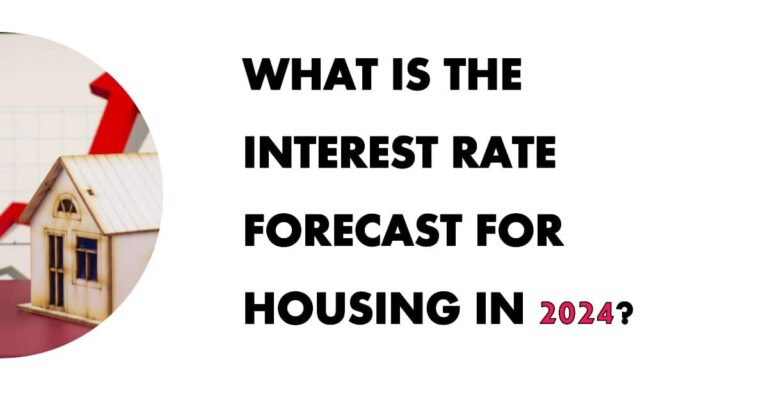Interest rates are a key factor that affects the housing market, as they influence the cost and availability of mortgages for homebuyers and sellers. Interest rates have been rising in 2022 and 2023 due to high inflation and the Federal Reserve’s monetary tightening policy. However, many experts predict that interest rates will start to decline in 2024, as inflation slows down and the economy cools off.
Interest Rate Forecast for Housing in 2024
According to various sources, the average interest rate for a 30-year fixed mortgage could range from 5% to 7.1% in 2024, depending on the economic conditions and the Fed’s actions.
This would be lower than the current rate of 7.08% as of October 2023, but still higher than the historic lows of 2.65% in January 2021. Homebuyers who are waiting for lower interest rates may find some relief in 2024, but they should also consider other factors such as home prices, supply and demand, and competition in the market.
The interest rate forecast for housing in 2024 may vary depending on the source and the methodology used. For example, Fannie Mae, a government-sponsored enterprise that provides mortgage financing, predicts that mortgage rates will average 6.7% in 2023 and 6.5% in 2024.
On the other hand, Trading Economics, a website that provides economic data and analysis, forecasts a rise to 5% in 2023 before falling back down to 4.25% in 2024 and 3.25% in 2025. These differences reflect the uncertainty and volatility of the economic environment and the possible scenarios that could affect interest rates in the future.
How Do Interest Rates Affect Home Prices?
Interest rates and home prices have an inverse relationship, meaning that when one goes up, the other goes down, and vice versa. This is because higher interest rates make mortgages more expensive, reducing the demand for homes and putting downward pressure on prices. Conversely, lower interest rates make mortgages more affordable, increasing the demand for homes and pushing up prices. However, this relationship is not always linear or consistent, as other factors such as income, supply, location, and preferences can also affect home prices.
How Do Interest Rates Affect Home Affordability?
Home affordability is a measure of how easily a typical household can afford to buy a home in a given market. It depends on several factors, such as income, home price, interest rate, down payment, taxes, insurance, and other expenses. Generally speaking, lower interest rates make homes more affordable, as they reduce the monthly mortgage payments and increase the borrowing capacity of buyers.
Higher interest rates make homes less affordable, as they increase the monthly mortgage payments and decrease the borrowing capacity of buyers. However, home affordability also depends on how income and home prices change over time relative to interest rates.





